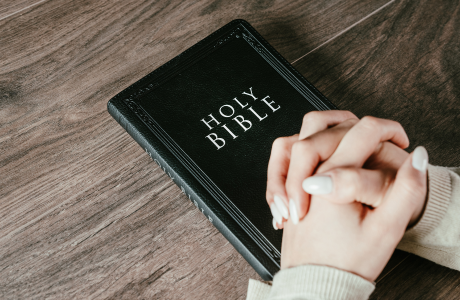Jesus taught us not to swear oaths, but there are occasions when we are required to. Should I swear an oath in a courtroom, for example? I’m asked this question occasionally, so writing a blog on this topic would be helpful. Here it is!
The Scriptures
Jesus taught this during his famous Sermon on the Mount. He said, “You have heard that it was said to those of old, ‘You shall not swear falsely, but shall perform to the Lord what you have sworn.’ But I say to you, do not take an oath at all, either by heaven, for it is the throne of God, or by the earth, for it is his footstool, or by Jerusalem, for it is the city of the great King. And do not take an oath by your head, for you cannot make one hair white or black. Let what you say be simply ‘Yes’ or ‘No’; anything more than this comes from evil.”
Some translations end with “comes from the evil one,” suggesting that Satan is somehow behind the swearing of oaths. But that’s not correct. Swearing an oath does not originate with a personality such as Satan. More on that in a moment because the word “evil” actually holds the key to what Jesus is teaching.
Changing Scripture
In this section of Jesus’ Sermon, he modifies some of the Scriptures. If you read Matthew chapter five, you’ll notice Jesus say several times: “You have heard that it was said to those of old… But I say to you.” Jesus quotes from the Tanakh (The Christian Old Testament) each time and updates the meaning. His statement about oaths paraphrased several verses from the Tanakh:
- You shall not misuse the name of the Lord your God, for the Lord will not hold anyone guiltless who misuses his name. (Exodus 20:7)
- Do not swear falsely by my name and so profane the name of your God. I am the Lord. (Leviticus 19:12)
- You shall not misuse the name of the Lord your God, for the Lord will not hold anyone guiltless who misuses his name. (Deuteronomy 5:11)
- If you make a vow to the LORD your God, do not be slow to pay it, for the LORD your God will certainly demand it of you, and you will be guilty of sin. But you will not be guilty if you refrain from making a vow. Whatever your lips utter, you must be sure to do because you made your vow freely to the LORD your God with your own mouth. (Deuteronomy 23:21-23; plus, Numbers 30:3-15).
Jesus argues for a better way by teaching that vows are unnecessary. He agrees with Ecclesiastes 5:5: It is better not to make a vow than to make one and not fulfill it.
The apostle James quoted Jesus in his letter: “But above all, my brothers and sisters, do not swear, either by heaven or by earth or by any other oath, but let your “yes” be yes and your “no” be no, so that you may not fall under condemnation.” The Greek word “condemnation” refers to an accusation against you by others and does not refer to God’s judgment in this context.
Unnecessary Oaths
Jesus teaches against the use of oaths because they are unnecessary. All you need to say is simply ‘Yes’ or ‘No’; anything beyond this comes from evil. In other words, oaths are worthless or pointless.
Jesus showed that oaths are unnecessary and have no value. He taught simplicity and integrity by encouraging people not to make things more complicated than necessary. Rather than getting into all kinds of oaths, just a simple YES or NO will do. Keep your communication uncluttered. Be an upright and honest person.
One of the lessons my recently departed dad taught me was always to make my word my bond, a phrase that originated in Shakespeare’s The Merchant of Venice. From there, it became an accepted English Proverb: “An honest man’s word is as good as his bond.” “Word is Bond” has been used by several rap artists, stressing the importance of speaking the truth and standing by what you say.
If I tell someone, “I give you my word,” they can rest assured that I will do what I say and do not need to swear an oath to add assurance. My word is my bond. When we live like this, no one can accuse us of failing on our promise, as James suggests.
Everyday Life
In the Sermon on the Mount, Jesus teaches people how to live everyday life. I don’t believe his comments address an oath like one would give in a courtroom. Jesus is teaching about our communication with one another where just a simple YES or NO will do rather than attempting to back it up by swearing on God, yourself, or something else.
When I’m asked if I would take THE oath, my answer is Yes, most definitely. I have done so on many occasions and always do so with great sincerity. I have appeared in a courtroom several times as a character witness for someone accused of a crime. I have professed an oath on the Holy Bible: “I swear by Almighty God that the evidence I shall give will be the truth, the whole truth and nothing but the truth.”
I also swore an oath when I became an Australian Citizen in the 1980s: From this time forward, under God, I pledge my loyalty to Australia and its people, whose democratic beliefs I share, whose rights and liberties I respect, and whose laws I will uphold and obey.
These days, Conferees can choose between two versions of the pledge: one that refers to God and one that does not. I will always choose the one that refers to God, but that’s a personal choice.
There’s nothing wrong with saying that kind of oath, but keep your communication simple and sincere in daily life.




